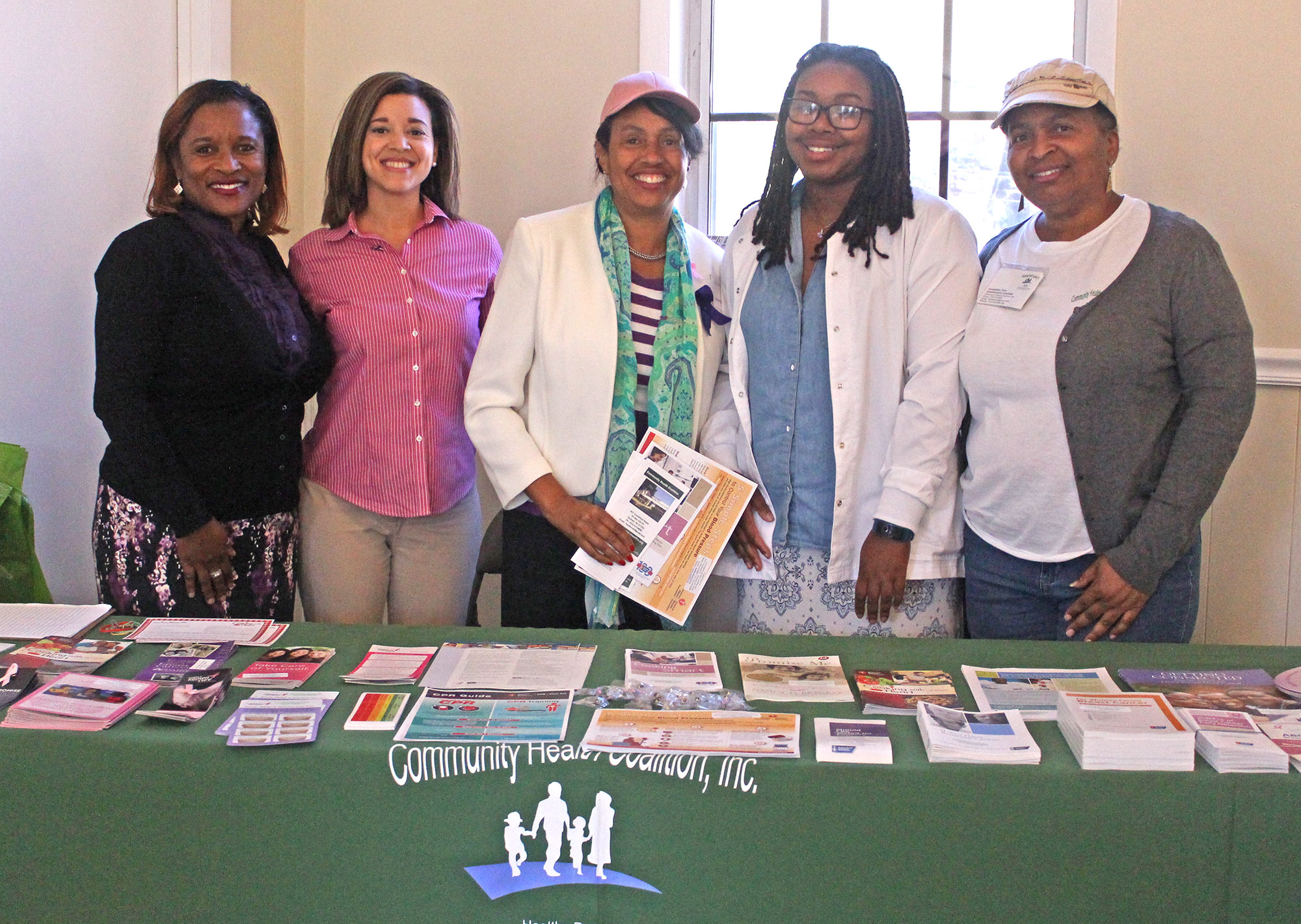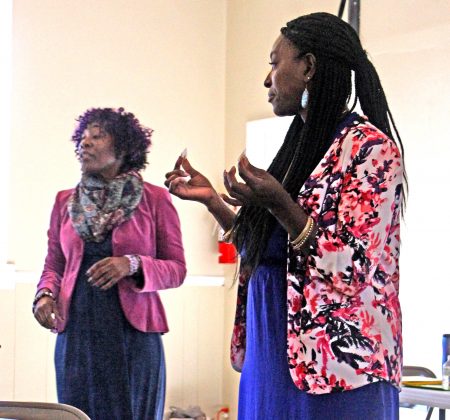
The attendants of the Dating Abuse workshop gather for a picture. From left to right - Dr. Michelle Laws, Mary Banks, Elaine Hart-Brothers, Jelessia Marshall, and Gwendolyn Perry. (Staff photo by Keynari Brown)
“Just because we don’t like it and don’t talk about it, doesn’t mean it’s going to go away.”
These are the blunt yet all too truthful words of Auriela Sands Belle, the Executive Director for the Durham Crisis Response Center in Durham, North Carolina. This quote came during a domestic violence forum held at the Monument of Faith Church of God in Durham that also took a closer look at the unhealthy level of abuse that occurs in teenager relationships.

April-Autumn Jenkins & Dawn Wilson lead a hypothetical scenario activity (Staff photo by Keynari Brown)
This workshop is just one of the many that the DCRC can offer victims of domestic violence, sexual abuse, etc., especially in a time when sexual abuse is heavily covered by the media.
DCRC provides services to any individual 13 years and older who has been affected by rape or sexual violence. It does not matter when the sexual assault or abuse occurred.
“We work as a team,” said Shirrell Thomas, Community Outreach Coordinator, about how the workshops are planned. “We work as a team that consists of DCRC staff, local entities, allied professionals and others considered community leaders.”
“In light of much that is going on regarding sexual violence and other forms of intimate partner violence, this workshop is timely,” said Belle. “We are focusing on our youth, but quite frankly, anyone engaged in intimate relationships. No one is immune.”
As the attendants of the event watched, Shereka Dunston, Youth Prevention Educator, flipped through the PowerPoint presentation of Dating Abuse: Tools for Talking to Teens, and were surprised by the statistics which became the focus of their conversation regarding the wellbeing of children.
One in three adolescents is a victim of physical, sexual, emotional, or verbal abuse from a dating partner. Half of teenagers in relationships report being controlled, pressured, or threatened in a relationship.
“And this is just the stuff that actually gets reported,” said Dunston. “Most of it either gets ignored or swept under the rug.”
And it does get ignored quite often. Less than one-third of all parents actually hold a conversation with their children about dating abuse. Nearly two-thirds of those parents that have teenagers in relationships don’t even think their children are at risk of teen dating violence.
“It’s really nothing but a vicious cycle,” stated Dunston through the shaking of her head. “Teens in abusive relationships are more likely to become abusers when they are adults.”
To grasp a clear definition of what exactly dating abuse is, Dunston and Belle both defined it as a pattern of actual or threatened acts of physical, sexual, emotional, and/or spiritual abuse towards a partner.
“Abuse is nothing but a pattern,” Belle said stately. “And it will continue and escalate.”